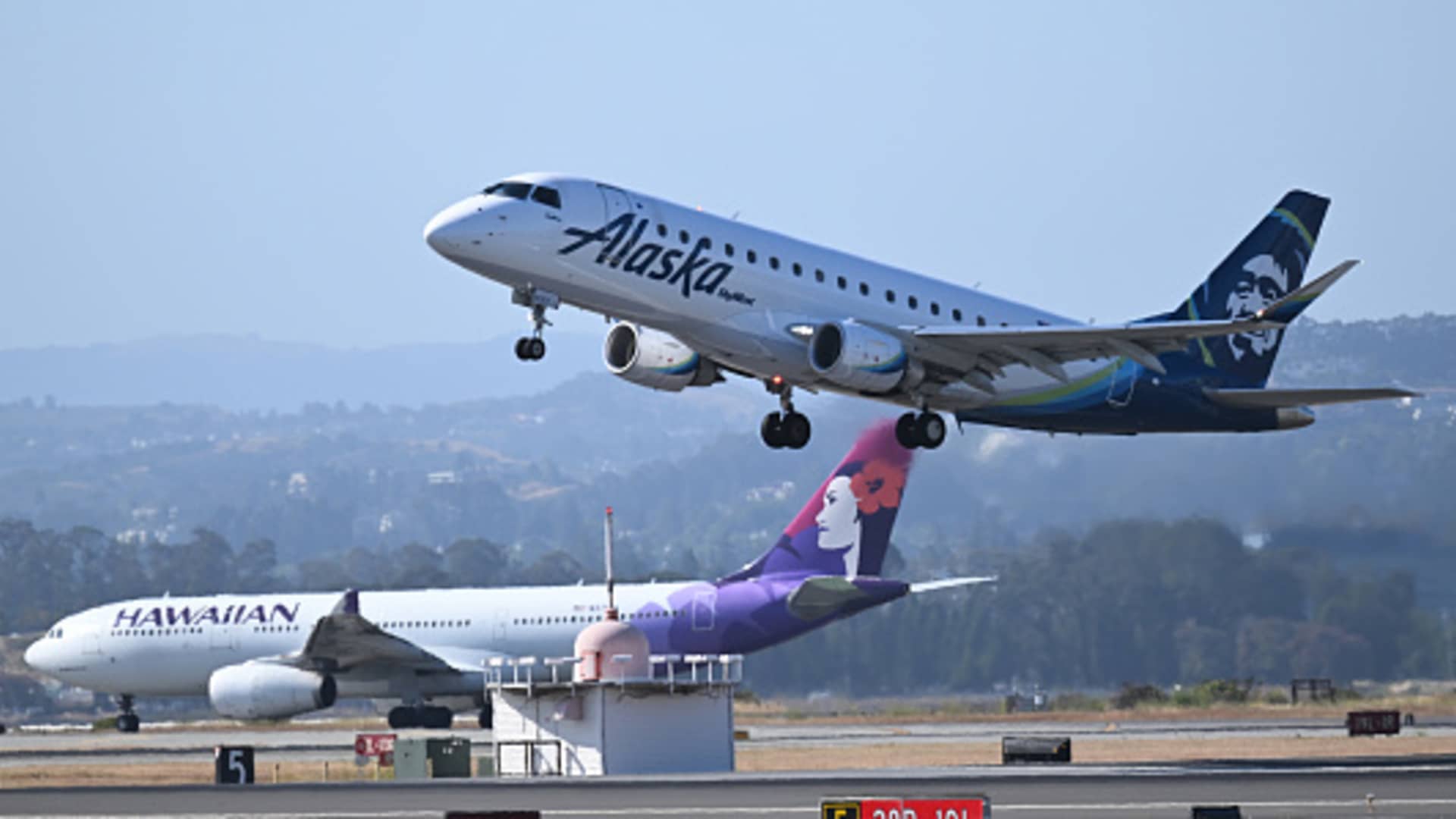Alaska Airlines said that its plan to acquire Hawaiian Airlines has cleared the U.S. Justice Department after the period for antitrust regulators to finish an investigation of the deal ended without a lawsuit to block the deal, eight months after the two carriers announced a $1.9 billion agreement to combine.
The two airlines now have to win approval from the U.S. Transportation Department before the deal closes. It wasn’t immediately clear how long that process will take.
The combination would become the largest merger of U.S. carriers since Alaska merged with Virgin America eight years ago.
“The time period for the U.S. Department of Justice to complete its regulatory investigation of the proposed combination of Alaska Airlines and Hawaiian Airlines under the [Hart-Scott-Rodino Antitrust Improvements] Act has expired,” Alaska Airlines said in a statement. “This is a significant milestone in the process to join our airlines.”
The development comes after the DOJ won a court ruling in January that blocked JetBlue Airways‘ acquisition of Spirit Airlines. Last year, the DOJ won another suit that undid a partnership in the Northeast between JetBlue and American Airlines.
Hawaiian had faced a host of challenges in the months leading up to the deal — which the two carriers announced last December — including the Maui wildfires, increased competition from Southwest Airlines, and the slower recovery of travel to and from Asia after the Covid-19 pandemic.
Hawaiian has posted net losses in all but one quarter since the start of 2020, but executives have recently said booking trends are improving. Hawaiian’s shares were up almost 12% this quarter, as of Monday, while most other airlines’ shares have dropped.
The two airlines said in December when they announced the deal that they would keep each carrier’s brand but operate under a single platform, combining into a more than 360-airplane fleet covering over 130 destinations.
The Justice Department and Transportation Department didn’t immediately comment on Tuesday.
